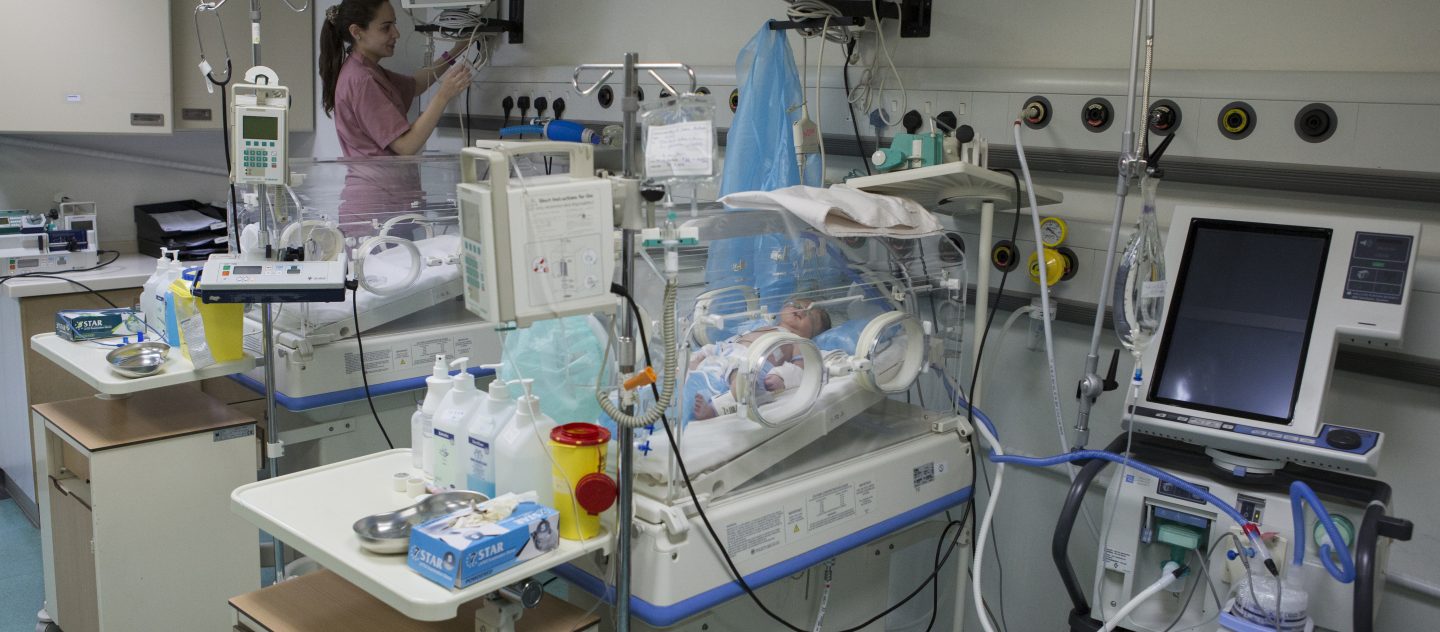UNHCR continues to partner with the Ministry of Public Health (MoPH) to strengthen the health system and reinforce response capacity.
UNHCR has an active role in the national COVID-19 vaccination campaign and in 2021, through mobile vaccination units, it administered 27,623 vaccine doses to refugees and Lebanese living in remote areas. UNHCR has supported the rehabilitation of two Primary Health Care Centers (PHCs) for COVID-19 vaccination in rural areas of Bekaa and North Lebanon and the provision of medical supplies and a loan of medical equipment for three large vaccination sites.
As of December 2021, UNHCR Lebanon has supported 13 hospitals with donations of advanced medical equipment, supplies, medications, and Protective Personal Equipment (PPEs). Through these donations, the capacity of the Lebanese health care system was increased with 100 ICU beds and 586 regular beds for COVID treatment. UNHCR also donated diesel to 18 governmental hospitals during the fuel crisis.
What has UNHCR done to contain the Cholera outbreak?
- UNHCR has and is still leading on the cholera vaccination campaign throughout Lebanon. During the first phase, over 537,700 doses were administered. The campaign is now in its second phase, targeting 1,134,510 persons in Akkar, Tripoli, Minieh Dinnieh, Baalbeck and Zahle. The national vaccination campaign was launched on 12 November in the targeted hotspot areas. This includes mobilization of over 250 vaccination teams for door-to-door vaccine inoculation, awareness-raising and community engagement, distribution of cholera education materials to build awareness and promote vaccination and other practical and logistical support. Partners supporting the campaign include WHO, UNICEF, Amel Association International, Lebanese Red Cross (LRC), Medair and Médecins Sans Frontières (MSF).
- UNHCR is also providing necessary support to refugee cholera patients, covering hospital admission cost for severe patients as required.
- UNHCR undertook construction works to convert the UNHCR COVID-19 facility into a cholera response facility in Halba and Tripoli Governmental hospitals.
- UNHCR is also dispatching emergency stock of medicines and supplies to key hospitals responding to cholera.
- UNHCR is also distributing hygiene kits and providing flash chlorination in key communities.
- The integrated response plan also focuses on ensuring readiness and response capacity, including: preventing outbreaks through improved water safety, including through ensuring safe drinking and domestic water, adequate hygiene and awareness in the community and at schools; preventing outbreaks through appropriate wastewater treatment systems; preventing outbreaks through ensuring WASH services are maintained in line with standards; enhancing surveillance and detection capacity; preventing outbreaks through ensuring reliable regular water sampling, testing and analysis; enhancing case management capacity for severe cholera cases; ensuring response readiness at all levels; promoting awareness among national, municipal and community actors.
Check our most recent health Factsheet in English.

